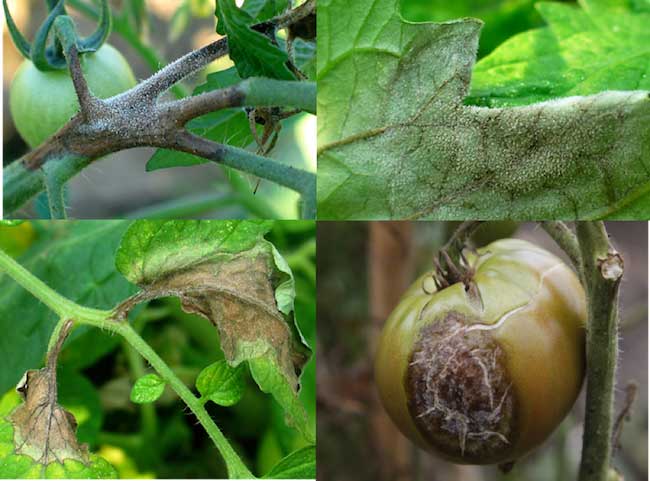Orleans vegetable growers urged to be on lookout for Late Blight
Plant-killing disease has been detected in Genesee County
Press Release, Cornell Vegetable Program
KNOWLESVILLE – Late Blight was detected in Genesee County on August 16. Late blight is a serious, airborne disease of tomatoes and potatoes best known for causing the Irish potato famine. Late blight is caused by a fungus-like organism that spreads dozens of miles on storm fronts.
If you have either crop in your garden, you should be inspecting your plants and spraying with a preventative fungicide. For home gardeners, Chlorothalonil is usually the best preventative fungicide. For those who grow organically, a copper product would be an option. The product label should list Late Blight & tomato/potatoes (which ever you are treating).
Late blight can kill plants in less than two weeks. Disease spots are often dark gray to brown in color and tend to be surrounded by pale green tissue.
Initially, spot shape and size varies but eventually most of an infected leaf or stem will become discolored and die. Leaf spots often look slightly fuzzy on the underside of the leaf in the early morning or when the weather is wet and humid conditions.
Late blight will put dark brown to black smears on plant stems. Tomato fruit may also develop large, firm, greasy-looking, brown, gray, or black smears on the upper part of the fruit.
Potato leaves show dark spots with fuzzy white spores on the underside during humid weather. Potato stems show similar lesions to those seen in tomato.
Late blight does not resemble lower leaves that yellow and contain numerous small black specks. Late Blight does not resemble leaves that have spots that contain small, black, concentric rings.
Remember – if you find late blight it is probably too late to save your plants. Bag up diseased plants ASAP, preferably when the sun is shining and if possible, when the plants are dry. Let them cook in the sun in garbage bags, then dispose of them. DO NOT compost plants. The spores are airborne so leaving your plants alive will infect your neighbors.
If you need help identifying it, please bring a sample to your local Cornell Cooperative Extension office – preferably in a clear, plastic bag.
Since this disease is aggressive, spreads easily, and can be very damaging to area farmers, Cornell Cooperative Extension asks that anyone suspecting they have late blight please contact their local CCE office for assistance.
In Orleans County, the office can be reached at 585-798-4265. Commercial vegetable farmers may contact the Cornell Vegetable Program.






































































